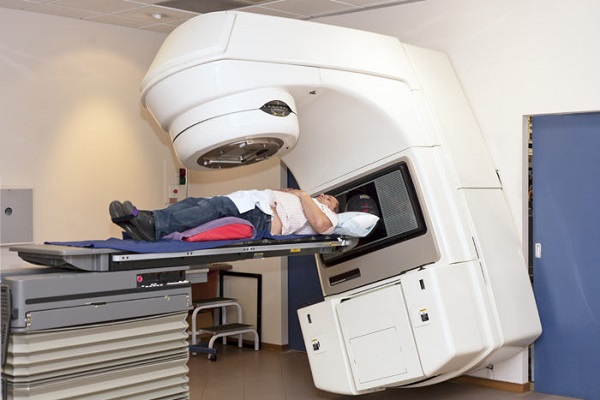
As World Cancer Day is observed globally, the National Health Insurance Authority (NHIA) said it is addressing the high cost of radiotherapy, an essential component of cancer care.
To tackle this issue, NHIA has introduced a cost-sharing initiative that provides a subsidy of up to N400,000 for eligible cancer patients undergoing radiotherapy.
Director-general of NHIA, Dr. Kelechi Ohiri shared this update with journalists on Wednesday in Abuja. He emphasised the authority’s efforts to alleviate the financial burden of cancer treatment in Nigeria.
“Radiotherapy plays a vital role in treating a variety of cancers, especially in advanced stages. However, its high cost has made it largely inaccessible to many Nigerians,” he stated.
“To address this challenge, NHIA is offering a 50 per cent subsidy for radiotherapy expenses, capped at N400,000. This initiative is part of a broader strategy to ensure that patients receive timely and effective treatment without financial distress,” he added.
In addition to financial support for radiotherapy, Ohiri mentioned that NHIA has partnered with several oncology facilities across Nigeria to ensure the availability of high-quality radiotherapy services.
Key developments include increasing the number of accredited radiotherapy centres to make treatment more accessible across the country and strengthening collaborations with pharmaceutical and medical equipment companies to guarantee access to modern radiotherapy technology.
Ohiri also noted that NHIA is engaging in ongoing discussions with stakeholders to enhance reimbursement limits for radiotherapy services and expand the scope of coverage for enrollees.
“NHIA’s commitment to cancer care goes beyond just radiotherapy. Through its formal sector program and the Group Individual and Family Social Health Insurance Programme (GIFSHIP), the authority covers a comprehensive range of oncology services for enrollees. These include:
– Screening and diagnostics: Access to diagnostic tools such as tumour marker assays, MRI, CT scans, mammography, ultrasound, histology and endoscopy.
– Surgical Interventions: Coverage for surgeries, including mastectomy, prostatectomy and other oncology-related procedures.
– Chemotherapy: Access to both fully and partially covered chemotherapy drugs through NHIA’s cost-sharing model,” he explained.
Recognising the financial burden that cancer treatment places on Nigerian families, NHIA has partnered with pharmaceutical giants like Roche Limited and Pfizer to introduce cost-sharing for oncology medicines.
This initiative currently benefits over 200 patients receiving care at seven tertiary care centres across the country. NHIA is also working to expand partnerships with other pharmaceutical companies to ensure access to a wider range of cancer treatments.
“NHIA is continuously working to build a robust healthcare infrastructure for cancer care. This includes:
– Contracting service providers capable of delivering comprehensive oncology services.
– Increasing the number of accredited oncology centres to make cancer treatment more accessible to Nigerians.
– Plans to expand access to advanced diagnostic services through innovative financing mechanisms in the future.
NHIA’s efforts focus on leveraging health insurance as a tool for sustainable financing, ensuring that cancer patients are not burdened by exorbitant treatment costs. By expanding the services within the benefit package and implementing innovative financing models, NHIA aims to reduce the financial impact of cancer on individuals, families and the broader Nigerian society.
Meanwhile, former president of the Nigerian Cancer Society (NCS), Dr. Adamu Umar stated that through these initiatives, NHIA is playing a key role in improving access to cancer care, making treatment more affordable and, ultimately, enhancing patient outcomes across the country.
Umar expressed that “Radiotherapy is an essential part of cancer treatment, especially for patients in advanced stages. The NHIA’s cost-sharing model will significantly alleviate the financial burden, ensuring that more patients can receive timely care.”
He further emphasised that “Access to radiotherapy in Nigeria has been a longstanding issue due to prohibitive costs. The NHIA’s initiative is a step in the right direction and it is crucial that more patients benefit from such programmes.”

